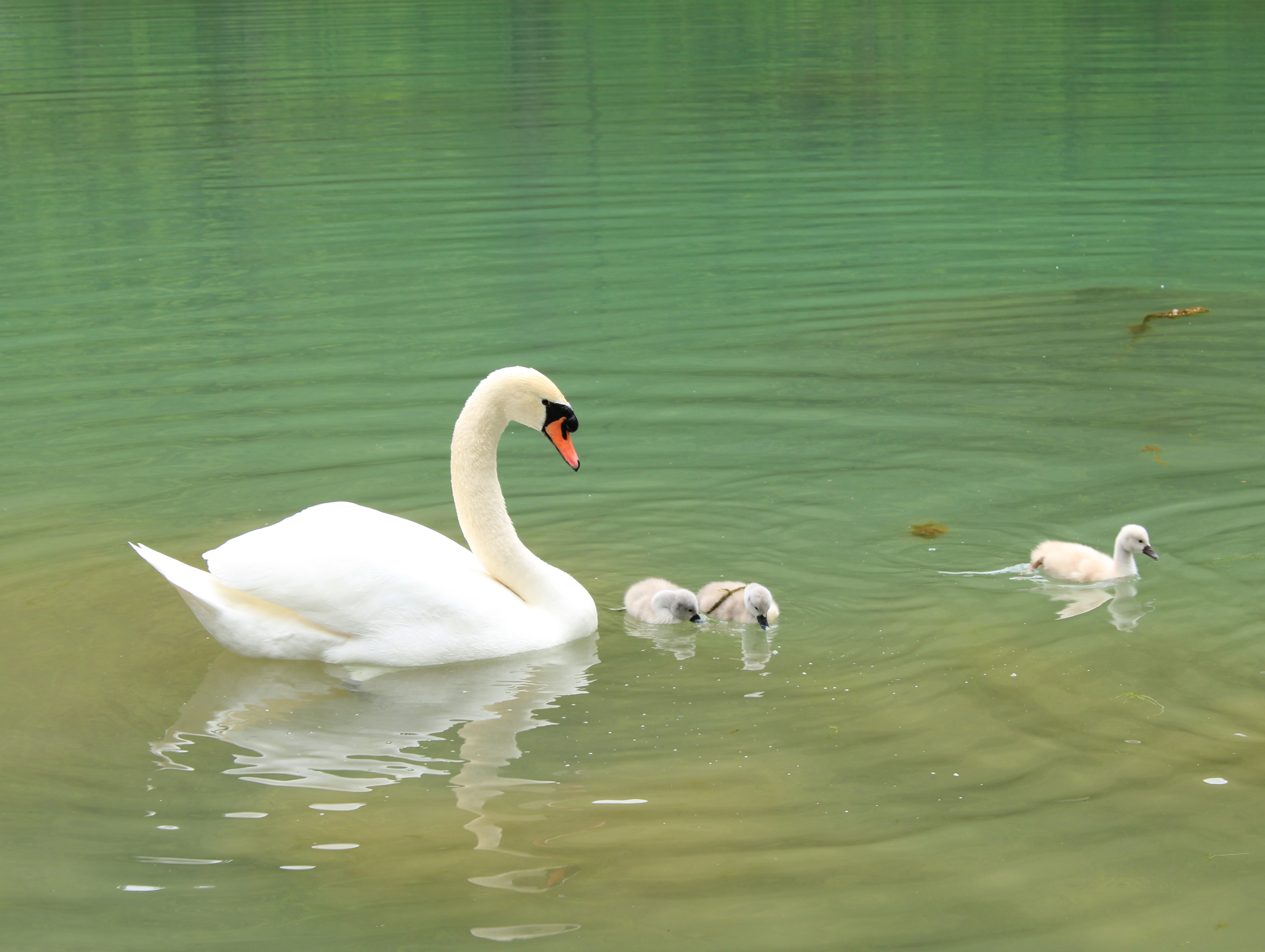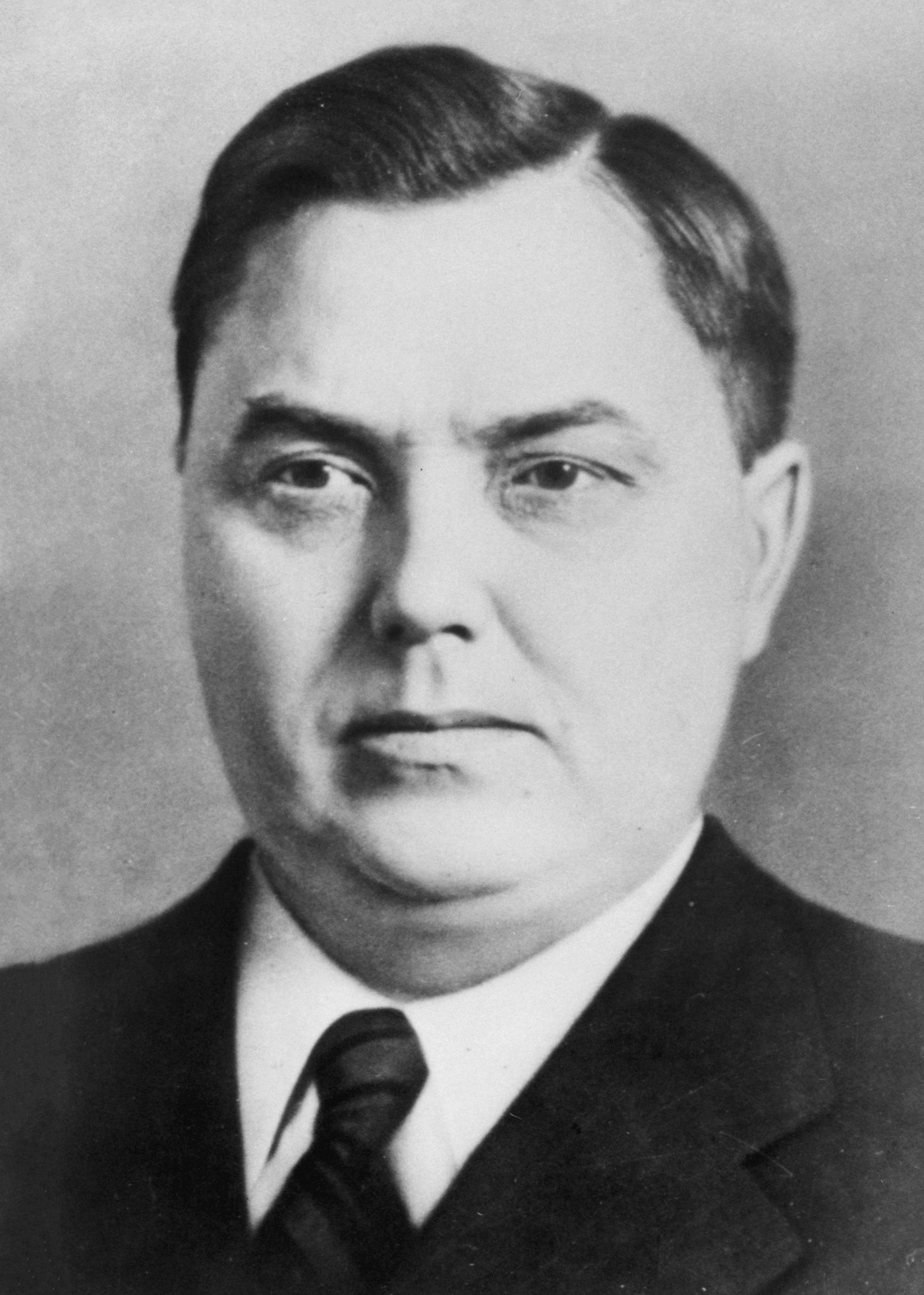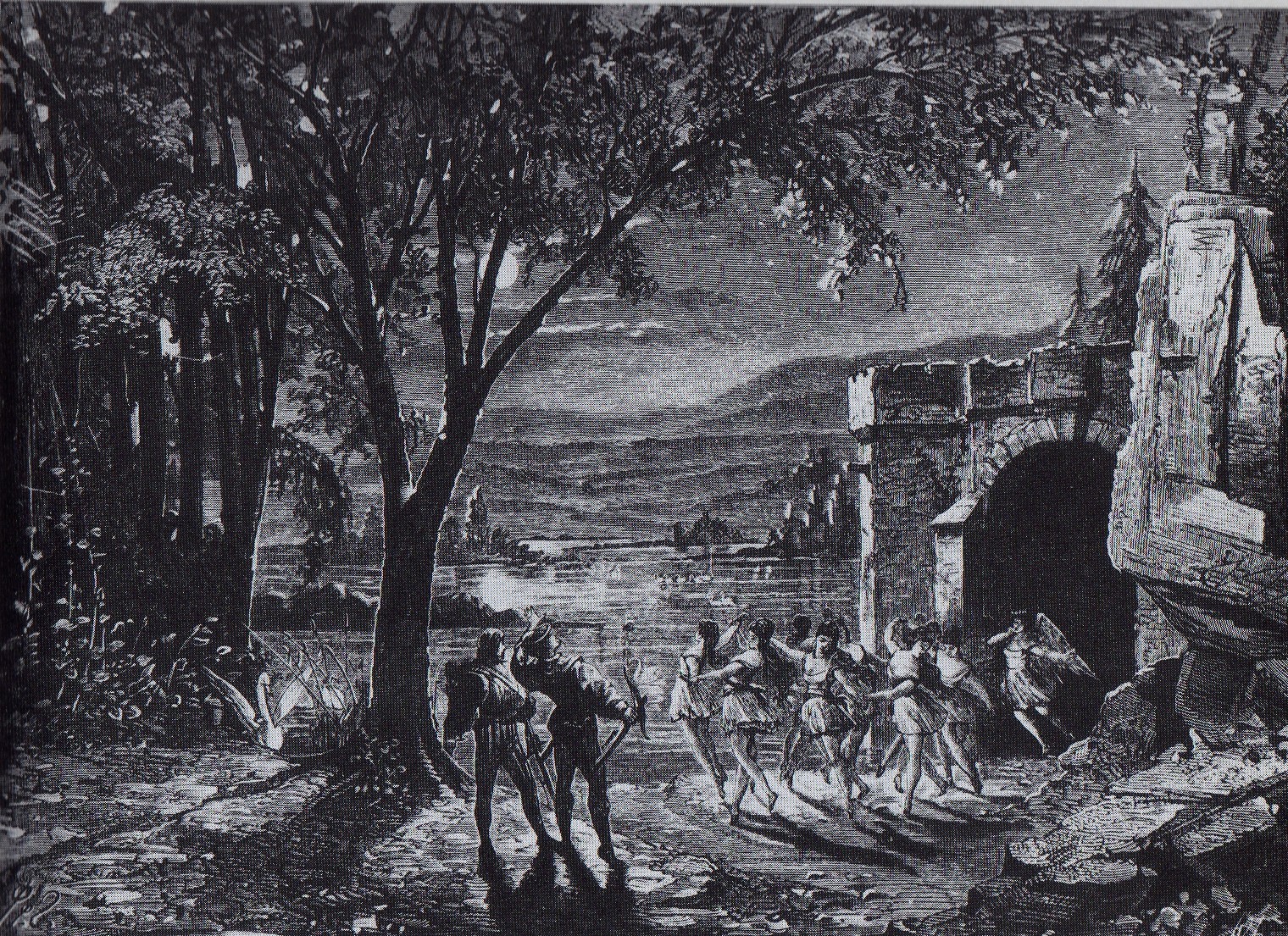|
Balāde Par Gulbi
Balāde par gulbi ''()'' is a song by Latvian Rock band Pērkons, written by Māris Melgalvis (lyrics) and Juris Kulakovs (music) in 1979 and recorded in 1983.Pērkons, Dziesmu izlase #1 1981–1982 (CD booklet) Written while Latvia was still part of USSR, it is noted for its anti-soviet subtext. The opening part of the song deals with a crow with no sense of humor sitting on a fresh grave and forcing her opinion on everyone. However, after some time, the crow begins to sense something odd about the grave and relives her own tragedy. It is not until the end, when the crow has had enough of the bitter silence, that she realizes what has happened to her and that the crow is "the woman she loves". Most of the song dwells on the stupidity of killing a swan, but in the end resolves that the swan is so red that one cannot help killing it (consider that in the early 1980s soviet leaders were dying one after another and were usually mourned by broadcasting Tchaikovsky's Swan Lake ... [...More Info...] [...Related Items...] OR: [Wikipedia] [Google] [Baidu] |
Latvian Rock
Latvian rock and roll, rock has been an important part of Latvia's music scene since the 1980s, when it was a part of the discontent with Soviet Union, Soviet rule. The city of Liepāja has an especially active rock scene. Līvi (band), Līvi, Credo (band), Credo and Remix are from Liepāja, as are rock composers Imants Kalniņš and Zigmars Liepiņš. In the 1980s, Pērkons (band), Pērkons played a pompous sort of hard rock that was popular with audiences. Underground studio-based groups NSRD and Dzeltenie Pastnieki introduced extensive use of electronic instrumentation, while Zig Zag (Latvian band), Zig Zag and Aurora (Latvian band), Aurora brought guitar-based post-punk tendencies (though about ten years after the fact). In 1988, rock opera Lāčplēsis (rock opera), Lāčplēsis by Zigmars Liepiņš and Māra Zālīte, based on the Lāčplēsis, national epic, became a hit, with Igo (singer), Igo (Rodrigo Fomins) in the title role of Lāčplēsis. Inokentijs Mārpls, Balo� ... [...More Info...] [...Related Items...] OR: [Wikipedia] [Google] [Baidu] |
Pērkons (band)
Pērkons () is a Latvian rock music, rock band formed in 1981. The band consisted of Juris Kulakovs (Keyboard instrument, keyboard, Composition (music), compositions), Juris Sējāns (bass guitar, bass, singing, vocals), Leons Sējāns (lead guitar), Ieva Akurātere (vocals), Raimonds Bartaševics (vocals), and Ikars Ruņģis (drums). Pērkons often played both instrumental European classical music, classical music and rock'n'roll or hard rock; but, they were better known for playing the latter. In 1983, the band was banned by the Government of the Soviet Union, Soviet government. However, they renamed and continued to play as the Ensemble of the Soviet Latvia Kolkhoz, Collective Farm. In 1985, after a concert in Ogre, Latvia, Ogre, a group of teenagers demolished two train compartments, resulting in the group being banned again, despite the band not being involved. The incident was documented by Juris Podnieks in the film ''Is It Easy to Be Young?'' In 1987, they played at the ... [...More Info...] [...Related Items...] OR: [Wikipedia] [Google] [Baidu] |
Māris Melgalvis
Māris is a Latvian masculine given name, a cognate of the English Maurice and may refer to: * Māris Ārbergs (born 1962), Latvian politician *Māris Bogdanovičs (born 1991), Latvian cyclist *Māris Bičevskis (born 1991), Latvian ice hockey player *Māris Bružiks (born 1962), Latvian triple jumper *Māris Čaklais (1940–2003), Latvian poet, writer, and journalist * Māris Diļevka (born 1992), Latvian ice hockey player *Māris Gailis (born 1951), Latvian politician, former Prime Minister of Latvia *Māris Grīnblats (1955–2021), Latvian politician * Māris Gulbis (born 1985), Latvian basketball player *Māris Jass (born 1985), Latvian ice hockey forward *Māris Jučers (born 1987), Latvian ice hockey goaltender *Māris Krakops (born 1978), Latvian chess Grandmaster *Māris Kučinskis (born 1961), Latvian politician *Māris Ļaksa (born 1981), Latvian basketball player *Māris Liepa (1936–1989), Latvian-Soviet ballet dancer * Māris Martinsons (born 1960), Latvian film d ... [...More Info...] [...Related Items...] OR: [Wikipedia] [Google] [Baidu] |
Juris Kulakovs
The Juris (also ''Juri'', ''Yuri'') were a tribe of South American Indigenous people, formerly occupying the country between the rivers Içá (lower Putumayo) and Yapura, north-western Brazil. In ancient days they were the most powerful tribe of the district, but in 1820 their numbers did not exceed 2000. Owing to inter-marrying, the Juris are believed to have been extinct for half a century. They were closely related to the Passes, and were like them a fair-skinned, finely built people with quite European features. Language Data on the Yuri language (Jurí) was collected on two occasions in the 19th century, in 1853 and 1867. The american linguist Terrence Kaufman notes that there is good lexical evidence to support a link with Ticuna in a Ticuna–Yurí language family (1994:62, after Nimuendajú 1977:62), though the data has never been explicitly compared (Hammarström 2010). Relation to Carabayo It is commonly assumed that the Juri people and their language has sur ... [...More Info...] [...Related Items...] OR: [Wikipedia] [Google] [Baidu] |
Latvia
Latvia, officially the Republic of Latvia, is a country in the Baltic region of Northern Europe. It is one of the three Baltic states, along with Estonia to the north and Lithuania to the south. It borders Russia to the east and Belarus to the southeast, and shares a Maritime boundary, maritime border with Sweden to the west. Latvia covers an area of , with a population of 1.9million. The country has a Temperate climate, temperate seasonal climate. Its capital and List of cities and towns in Latvia, largest city is Riga. Latvians, who are the titular nation and comprise 65.5% of the country's population, belong to the ethnolinguistic group of the Balts and speak Latvian language, Latvian. Russians in Latvia, Russians are the most prominent minority in the country, at almost a quarter of the population; 37.7% of the population speak Russian language, Russian as their native tongue. After centuries of State of the Teutonic Order, Teutonic, Swedish Livonia, Swedish, Inflanty Voi ... [...More Info...] [...Related Items...] OR: [Wikipedia] [Google] [Baidu] |
USSR
The Union of Soviet Socialist Republics. (USSR), commonly known as the Soviet Union, was a List of former transcontinental countries#Since 1700, transcontinental country that spanned much of Eurasia from 1922 until Dissolution of the Soviet Union, it dissolved in 1991. During its existence, it was the list of countries and dependencies by area, largest country by area, extending across Time in Russia, eleven time zones and sharing Geography of the Soviet Union#Borders and neighbors, borders with twelve countries, and the List of countries and dependencies by population, third-most populous country. An overall successor to the Russian Empire, it was nominally organized as a federal union of Republics of the Soviet Union, national republics, the largest and most populous of which was the Russian SFSR. In practice, Government of the Soviet Union, its government and Economy of the Soviet Union, economy were Soviet-type economic planning, highly centralized. As a one-party state go ... [...More Info...] [...Related Items...] OR: [Wikipedia] [Google] [Baidu] |
Subtext
In any communication, in any medium or format, "subtext" is the underlying or implicit meaning that, while not explicitly stated, is understood by an audience. The Oxford English Dictionary defines it as "an underlying and often distinct theme in a conversation, piece of writing, etc.", while according to Merriam-Webster, subtext is "the implicit or metaphorical meaning (as of a literary text)". These definitions highlight that subtext involves themes or messages that are not directly conveyed, but can be inferred. About subtext Subtext is content "sub" i.e. "under" (with the sense of "hidden beneath") the verbatim wording; readers or audience must "gather" subtext "reading between the lines" or inferring meaning, a process needed for a clear and complete understanding of the text. A meaning stated explicitly is, by definition not subtext (for lack of hiding), and writers may be criticized for failure artfully to create and use subtext; such works may be faulted as too "on ... [...More Info...] [...Related Items...] OR: [Wikipedia] [Google] [Baidu] |
Swan
Swans are birds of the genus ''Cygnus'' within the family Anatidae. The swans' closest relatives include the goose, geese and ducks. Swans are grouped with the closely related geese in the subfamily Anserinae where they form the tribe (biology), tribe Cygnini. Sometimes, they are considered a distinct subfamily, Cygninae. They are the largest Anseriformes, waterfowl and are often among the largest Bird flight, flighted birds in their range. There are six living and many extinct species of swan; in addition, there is a species known as the coscoroba swan which is no longer considered one of the true swans. Swans usually mate for life, although separation sometimes occurs, particularly following nesting failure, and if a mate dies, the remaining swan will take up with another. The number of bird egg, eggs in each :wikt:clutch, clutch ranges from three to eight. Taxonomy and terminology The genus ''Cygnus'' was introduced in 1764 by the French naturalist François Alexandre Pier ... [...More Info...] [...Related Items...] OR: [Wikipedia] [Google] [Baidu] |
List Of Leaders Of The Soviet Union
During History of the Soviet Union, its 69-year history, the Soviet Union usually had a ''de facto'' leader who would not always necessarily be head of state or even head of government but would lead while holding an office such as General Secretary of the Communist Party of the Soviet Union, Communist Party General Secretary. The office of the chairman of the Council of Ministers was comparable to a prime minister in the First World whereas the office of the chairman of the Presidium was comparable to a President (government title), president. In the Leninism, ideology of Lenin, the head of the Soviet state was a collegiate body of the Vanguardism, vanguard party (as described in ''What Is to Be Done?''). Following Joseph Stalin's Rise of Joseph Stalin, consolidation of power in the 1920s, the post of the general secretary of the Central Committee of the Communist Party of the Soviet Union, Central Committee of the Communist Party became synonymous with leader of the Soviet Un ... [...More Info...] [...Related Items...] OR: [Wikipedia] [Google] [Baidu] |
Swan Lake
''Swan Lake'' ( rus, Лебеди́ное о́зеро, r=Lebedínoje ózero, p=lʲɪbʲɪˈdʲinəjə ˈozʲɪrə, links=no ), Op. 20, is a ballet composed by Russian composer Pyotr Ilyich Tchaikovsky in 1875–76. Despite its initial failure, it is now one of the most popular ballets of all time. The scenario, initially in two acts, was fashioned from Russian and German folk tales and tells the story of Odette, a princess turned into a swan by an evil sorcerer's curse. The choreographer of the original production was Julius Reisinger (Václav Reisinger). The ballet was premiered by the Bolshoi Ballet on at the Bolshoi Theatre in Moscow. Although it is presented in many different versions, most ballet companies base their stagings both choreographically and musically on the 1895 revival of Marius Petipa and Lev Ivanov, first staged for the Imperial Ballet on 15 January 1895, at the Mariinsky Theatre in St. Petersburg. For this revival, Tchaikovsky's score was revise ... [...More Info...] [...Related Items...] OR: [Wikipedia] [Google] [Baidu] |


